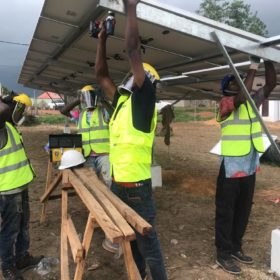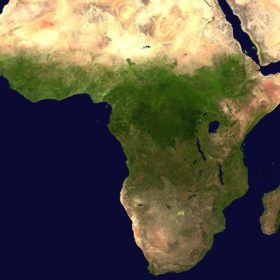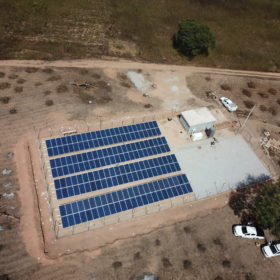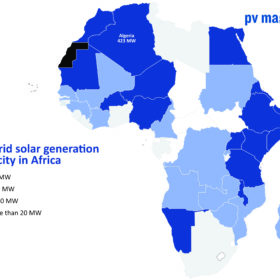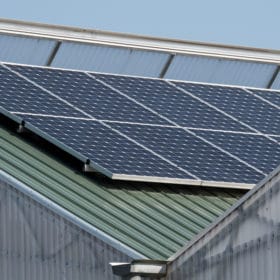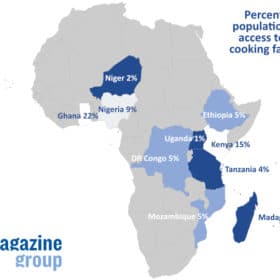Nigeria’s solar workforce can help the world to net zero
With a rising chorus of voices calling for more solar industry recruits to perform the energy transition, Nigeria already has a skilled base of PV engineers and, with a little help filling the few gaps they have in their knowledge, the nation can step into the breach immediately, as Testimony Gabe-Oji, chief technology officer for Abuja-based installer Green Energy Spectrum, explains.
US developer lands $1.75m deal for Nigerian mini-grids
Former start-up Husk, which originally based its business on renewables powered by rice industry waste products, has agreed to develop seven solar-plus-storage mini-grids across rural communities in Nasarawa state.
Fund hopes to raise $250m for urban climate projects in West Africa
The ARM-Harith Cities and Climate Transition Fund will feature public and private finance, according to the joint venture behind it.
PowerGen and CrossBoundary to deploy solar to 55,000 people in rural Nigeria within a year
U.S.-owned, Nairobi-based mini-grid developer PowerGen has already rolled out seven local solar networks in the West African country, funded by equity investors who will recoup their cash when all 28 systems are sold to CrossBoundary Energy Access.
Sahel-wide group buying program could drive solar home system supply
A report commissioned by EU lender the EIB has dismissed the role solar mini-grids can play in achieving universal electrification by 2030 and signaled distribution to individual households should be the way forward, including sales to the residents of UN refugee camps in East Africa.
Chinese PV Industry Brief: News of 360 MW project win in Nigeria and TBEA benefits from poly shortage
State-owned China Xinhua Power Development has booked a $53 million discount on seven solar farms as developer Kongsun seeks to pay down debts, and Canadian Solar has landed a 45 MWh energy storage contract in Colombia.
Rockefeller and Ikea foundations pledge $1bn for small scale renewables
With ‘shovel-ready’ projects across India, Africa and Latin America in line for a mix of grants, cheap loans, equity investment and financial guarantees from this year, the two bodies hope to trigger $20 billion in total funding and bring reliable power to a billion people.
Gravity-based storage for distributed solar
An international research team has designed a residential solar-plus-storage system based on gravity. The system was built with a solar power generator, a bulk booster charge controller, an inverter, a solenoid device, a deep cycle battery, a pulley block, a geared motor, a microcontroller, and wire ropes. Its creators said the system is ideal for regions with high solar radiation. They found that, due to its high electrical requirements, the system needs to rely on high-power solar modules with an output of over 500 W.
Universal electricity access by 2030 remains a distant dream
Energy efficiency, electrification of heating and transport, and the provision of clean cooking facilities are all going in the wrong direction as the Covid crisis deprived millions in sub-Saharan Africa of electricity use, according to a report by the IEA, IRENA, WHO, World Bank and UN Statistics Division.
Rising hardware costs slow Covid recovery for off-grid solar sales
The global off-grid solar appliance market began an uneven recovery from the worst ravages of the global pandemic in the second half of last year, according to market body GOGLA, but more finance and policy support must be made available to have any chance of achieving universal electricity access this decade.

